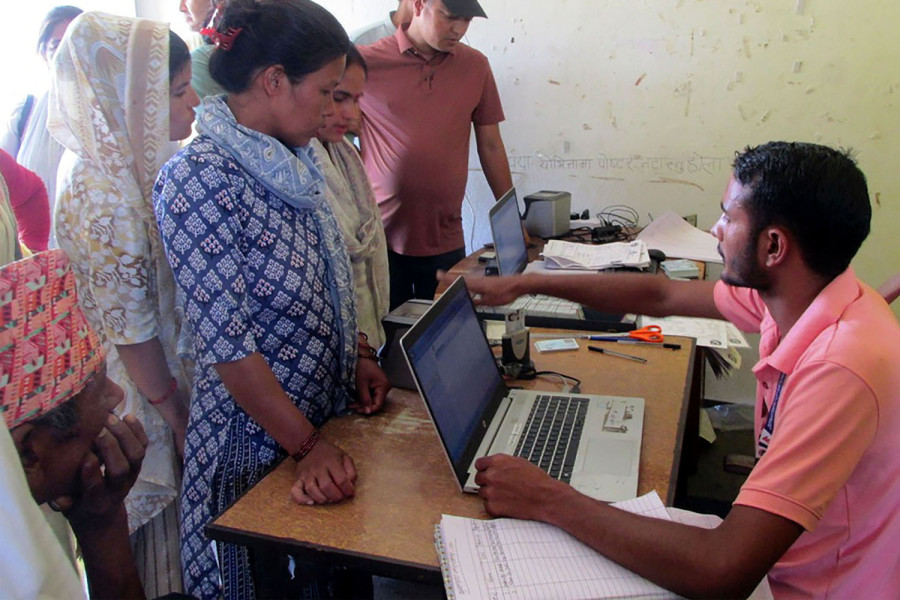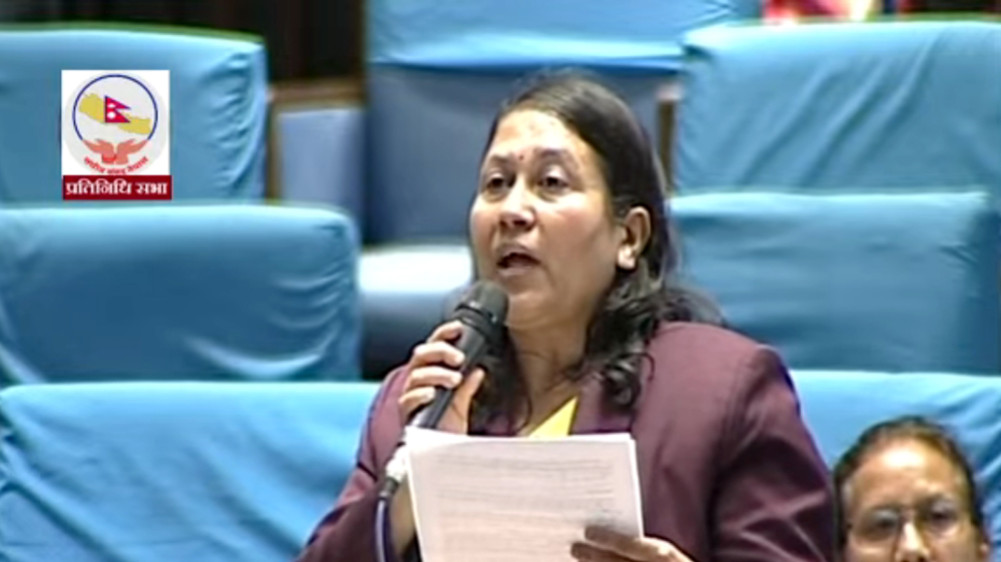National
Plan to make National ID cards mandatory draws flak
MPs say government has terrorised citizens by introducing the rule in haste. Department official defends the move.
Post Report
Lawmakers have sought to defer the plan requiring the National Identity Card while providing government services, including social security allowances.
The Ministry of Home Affairs has issued a notice making the card compulsory from mid-July for people with disabilities, the elderly, and single women who receive social security allowances.
The government also plans to make the ID card mandatory for citizens seeking driving licence, passport, and telephone number, while registering vital events such as birth, death and marriage, and for company registration and land ownership transfer.
The home ministry has announced that the rule will be enforced in 28 districts from the new fiscal year while distributing social security allowances.
The notice is based on the June 6 Cabinet decision, according to the National ID and Civil Registration Department of the home ministry.
CPN-UML lawmakers on Thursday asked the government to halt the decision. They said at the House of Representatives that senior citizens, sick people, and those with physical disabilities have difficulties reaching the district administration offices to obtain the National Identity Card.
Rishikesh Pokharel, a UML lawmaker, said the government made the decision in haste and without preparation.
“Though it is a good thing to implement the National ID rule, the government has spread terror by mandating the beneficiaries to produce the ID to get social security allowances from the new fiscal year,” Pokharel said at the House meeting. He urged the authorities to halt the process and make enough preparations to distribute the cards first.
Speaking in the zero hour of the House, Bidya Bhattarai, another UML lawmaker, demanded an extension of the timeframe for obtaining the card for the beneficiaries of social security allowances.

“I would like to ask the home ministry to extend the time for producing the ID card as the given time is not enough,” Bhattarai said. She demanded that the government deploy mobile teams to collect biometric data and prepare cards for the people.
However, a department official defended the government’s decision, saying that the lawmakers' raising questions about the time available showed a lack of understanding.
“Every fiscal year, the beneficiaries of social security allowance should be present at the respective ward office that releases the money,” the officer, who did not want to disclose his identity as he wasn’t authorised to speak to the media, told the Post.
“From July 16 to September 16, they can register or renew their cards at the ward office for social security. This means they still have three more months to produce the card. This is enough time.”
But the Post could find no answers when it brought up the issue of the current applicants for the ID being asked to come back for it after a year. Millions of citizens who have provided necessary data have yet to be issued the cards, months after registration.
The National Identity Card is a federal identity issued by the Department of National Identity Card and Civil Registration. It has a unique number assigned to each person and can be obtained by Nepali citizens based on their biometric and demographic data. The card features a unique number, photo, personal information, and fingerprints of the bearer.
The government officially launched the national identity card distribution campaign in 2018 by presenting a card to a 101-year-old woman in Panchthar district and to government employees at Singha Durbar. It announced plans to digitally integrate the driving licence, vehicle ownership certificate, banking services, tax payment system, voter ID card, and social security system, among other things, into the National Identity Card.




 10.12°C Kathmandu
10.12°C Kathmandu














